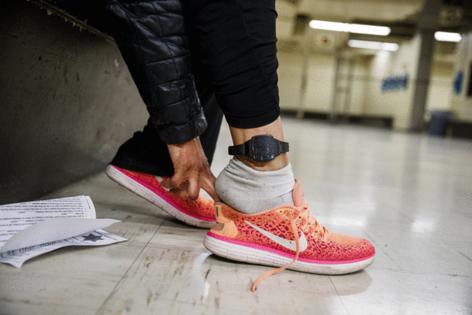Editorial: Illinois faces a moment of truth on electronic monitoring of criminal defendants
Published in Op Eds
Cook County’s system of electronically monitoring criminal defendants awaiting trial is the largest such system in the country, according to the county sheriff’s office. More than 3,500 people accused of crimes, including over 100 facing murder or attempted murder charges, aren’t behind bars and instead are confined to their homes or given curfews to return there, depending on the severity of their alleged offenses.
Our county is highly unusual in having two such systems, one run by Sheriff Tom Dart and the other by Cook County Chief Judge Tim Evans. Dart has said his office will stop monitoring the movements of new defendants beginning in April, likely leaving the Cook County courts to manage the critical function alone.
Dart’s rationale is that he doesn’t think his office can keep residents safe as the number of defendants on home confinement grows. New Cook County State’s Attorney Eileen O’Neill Burke, elected on promises to take a harder line on accused criminals than her progressive predecessor, has said the office will prosecute more crimes. Cook County judges likely will see more defendants before them, which logic suggests will mean more people headed to Cook County Jail but also more defendants wearing ankle bracelets.
Electronic monitoring has become a hotter topic of late as the public sees horrifying examples of those who are supposed to be confined at home out on the streets and allegedly committing violent crimes. Most notably, Harvey resident Darion McMillian, 23, was on electronic monitoring on drug-related charges when he allegedly shot to death Chicago police Officer Enrique Martinez, as well as a companion in the car in which McMillian was a passenger, on the night of Nov. 4 on the South Side.
McMillian ran from the scene, cutting off his ankle bracelet monitor, before police found and arrested him, police and a Cook County prosecutor said.
For several years now, Dart has been a critic of how Cook County is using electronic monitoring, saying that a program which began more than 30 years ago as a way to relieve jail overcrowding through pretrial release of those accused of non-violent offenses now is tasked with monitoring mainly alleged violent criminals.
In 2022, Chicago Mayor Lori Lightfoot pointed with alarm to the 100-plus people on electronic monitoring who had been accused of murder or attempted murder. She called on Evans to lock up accused killers. Evans, often an opponent of pretrial incarceration of all but the most dangerous defendants, said Lightfoot’s position amounted to saying that “defendants facing certain allegations be considered guilty until proven innocent.”
Lightfoot was right then, and Evans was wrong. Most would agree that those accused of murder should be considered a threat to public safety as they await trial. We hope Evans’ views become more in tune with the public’s now that the state’s landmark SAFE-T Act is in effect.
That law, which made Illinois the first state to end cash bail, has been a source of controversy since its initial passage in early 2021. The principle that someone charged with a crime shouldn’t be imprisoned solely because they lack the cash to make bail is a sound one. But there’s far more to the law than that, and there are plenty of people with extensive experience in the criminal justice system saying the statute needs to be tightened in the interest of public safety.
In the meantime, it also makes sense to us that a single office — whether the sheriff or the Cook County courts — be in charge of enforcing home confinement and curfew restrictions on defendants. It appears that will be Evans’ sole job soon, and in some ways that’s an appropriate outcome given the chief judge’s influential role in creating the system as we know it today.
Evans raises reasonable issues in terms of additional staffing that he’ll need, as well as close cooperation with the Chicago Police Department, and perhaps Dart’s office, too, since the security personnel employed by the judiciary don’t have arrest powers. The sheriff, of course, has such powers.
However oversight of this critical public safety function is sorted out once Dart’s office stops performing it, it’s imperative that Evans ensure he’s at least as concerned about the safety of streets in Chicago and the rest of Cook County as he is about the rights of the accused.
_____
©2024 Chicago Tribune. Visit chicagotribune.com. Distributed by Tribune Content Agency, LLC.




























































Comments